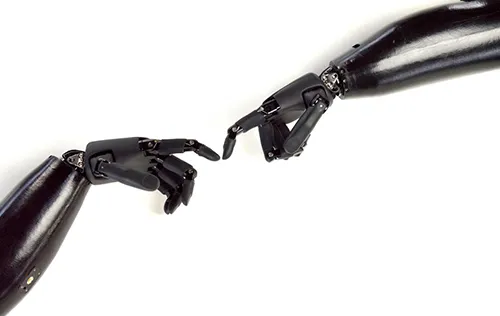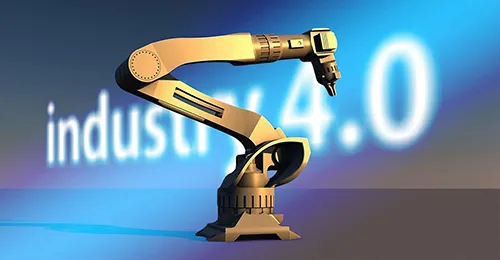Top 5 Trade Show Trends for Manufacturing World Japan

Manufacturing World Japan, world’s leading trade show for manufacturing industry, consists of 10 specialized shows, including:
- DMS (Design Engineering & Manufacturing Solutions Expo)
- M-Tech (Mechanical Components & Materials Technology Expo)
- MEDIX (Medical Device Development Expo)
- FacTex (Factory Facilities & Equipment Expo)
- AIoTex (Industrial AI/IoT Expo Expo)
- AM Japan (Additive Manufacturing Expo)
- AeroTech (Aerospace Technology & Components Expo)
- MeasureTech (Measure/Test/Sensor Expo)
- MDX (Manufacturing Digital Transformation Expo)
- Industrial ODM/EMS Expo.
The show is held 4 times a year in Tokyo, Osaka, Nagoya and Fukuoka.
The show, which we exhibited at the recently, perfectly ended in Tokyo from June 21st to June 23rd, 2023. Major visitors to the show were from design, development, manufacturing, production engineering, purchasing, and information systems divisions of automotive, heavy industry, electric, machinery and precision equipment manufacturers.
From this show, we would like to explore some of the key trends in Japanese Manufacturing.

Automation and Robotics
Japan has been a leader in automation and robotics. Due to its aging population, labor shortages, and high costs, Japanese companies have drove to streamline their operations and remain competitive. Today, Japan has the highest density of robots in the world, with over 300,000 industrial robots in operation. They perform tasks such as welding, painting, and assembly.
Japanese companies such as Toyota, Panasonic, and SoftBank are developing new robots and automation equipment to revolutionize the industry. One area of focus is the development of collaborative robots or cobots. The robots work alongside human being to improve efficiency and productivity with maintaining a safe working environment.

Industry 4.0
Industry 4.0, also known as the Fourth Industrial Revolution, is the integration of advanced technologies such as artificial intelligence, big data analytics, and the Internet of Things (IoT) with manufacturing industry.
In Japan, Industry 4.0 has promoted the development of cutting-edge technologies such as collaborative robots and industrial robots. Companies are able to enhance their productivity and minimize errors in various processes. With the strengthening of occupational safety guidelines and the improvement of manufacturing capacity, the market for robotic systems is anticipated to increase.

Sustainable Manufacturing
Japan, with its profound reverence for nature, has established itself as a front runner in the realm of sustainable manufacturing. Sustainable manufacturing includes reducing waste, using renewable energy sources, and producing products that are recyclable or biodegradable. The trend is not only good for the environment, but also leads to cost saving and brand reputation improvement.
The urgency to adopt sustainable practices and achieve carbon neutrality is becoming increasingly evident across various industries, such as Toyota and Panasonic adopting sustainable manufacturing practices.
Digital Twins
Digital twins are virtual replicas of physical objects, systems, or processes that can be used for simulation, analysis, and optimization. They are transforming Japan’s manufacturing industry with optimizing performance, reducing costs, and improving efficiencies.
A wide range of industries are benefiting from the use of digital twins technology. Toyota has developed a system called “virtual engineering”, Mitsubishi Electric has “Digital Utility Plant” , Fujitsu “Digital Twin Clinical Pathway” , and so on.

Supply Chain Resilience
The Covid-19 pandemic disrupted global supply chains and economic activities. Japan is no exception because of its fragile global supply chains.
Given the mounting threats of disruption across the globe, building supply chain resilience strategic is increasingly becoming a competitive advantage. The trend is from Just in Time supply chains with all their financial benefits to Just in Case supply chain strategy by holding more inventories.Most Japanese companies diversify their suppliers and adopting digital technologies such as blockchain to improve transparency and traceability.

Trends to Watch in Japan
In conclusion, Japanese manufacturing industry is facing significant challenges in automation, Industry 4.0, sustainability, digital twins, and supply chain resilience. But they also present opportunities for companies to improve efficiency, reduce costs, and produce products that meet the consumers requirements.
Japan’s manufacturing industry can continue to lead innovation and economic growth by staying ahead of these trends.
The next show will be held in Osaka from Oct. 4th, 2023 to Oct. 6th, 2023. It provides a innovation platform that contributes to R&D cycle shortening, productivity improvement, quality improvement, VA/VE, and cost reduction.
If you want to know more details about the trade show, please leave your contact information.

